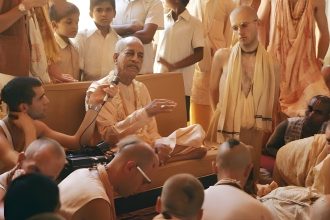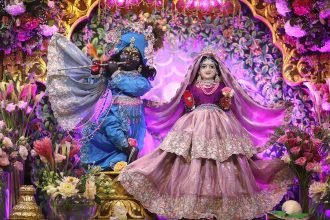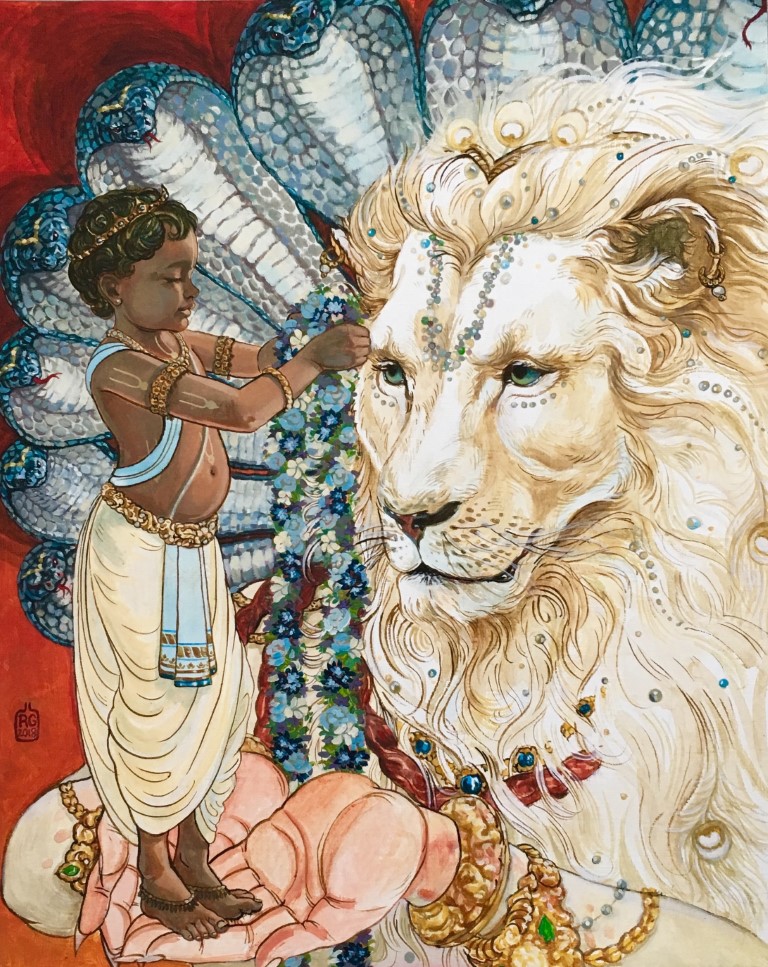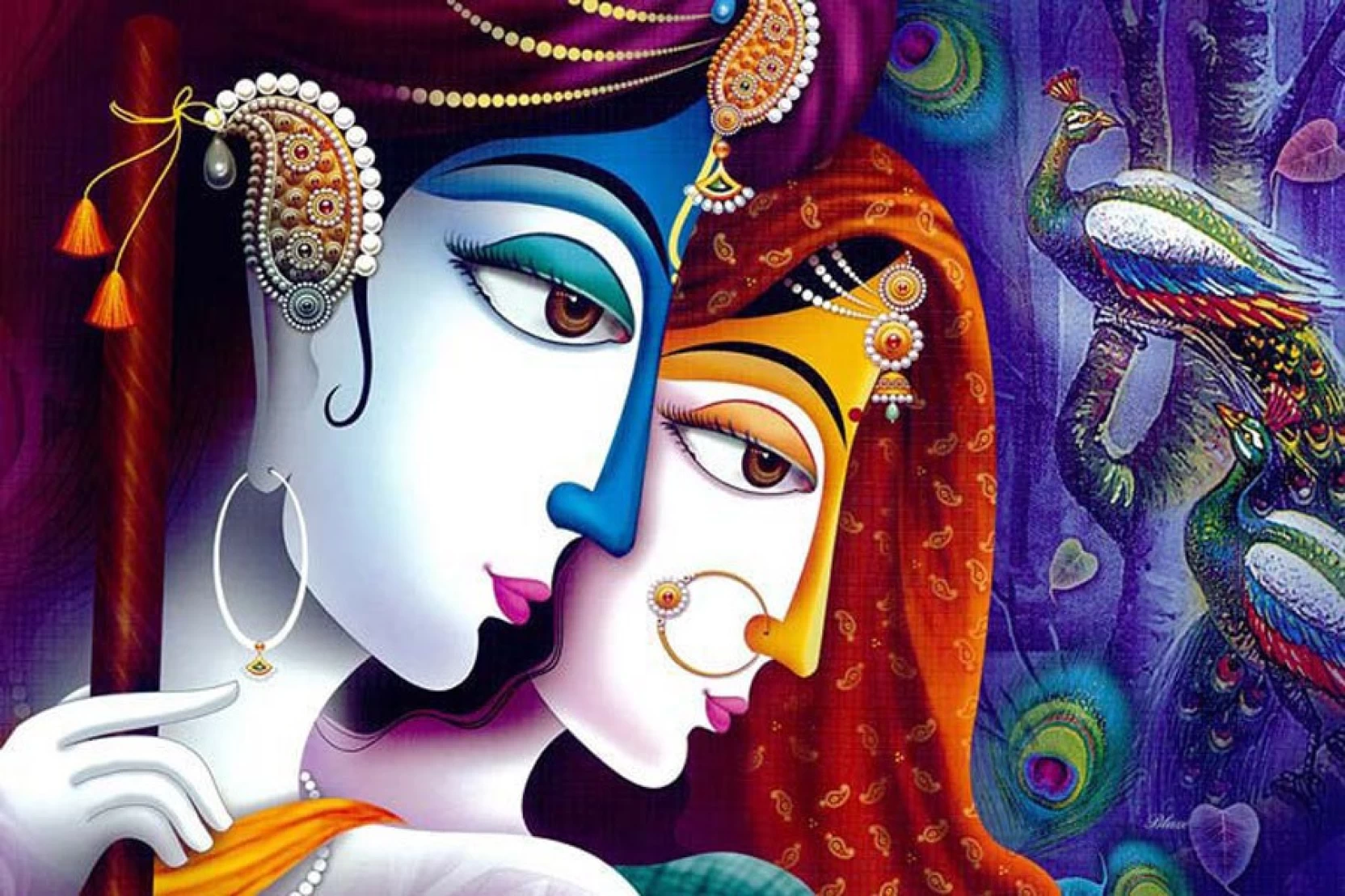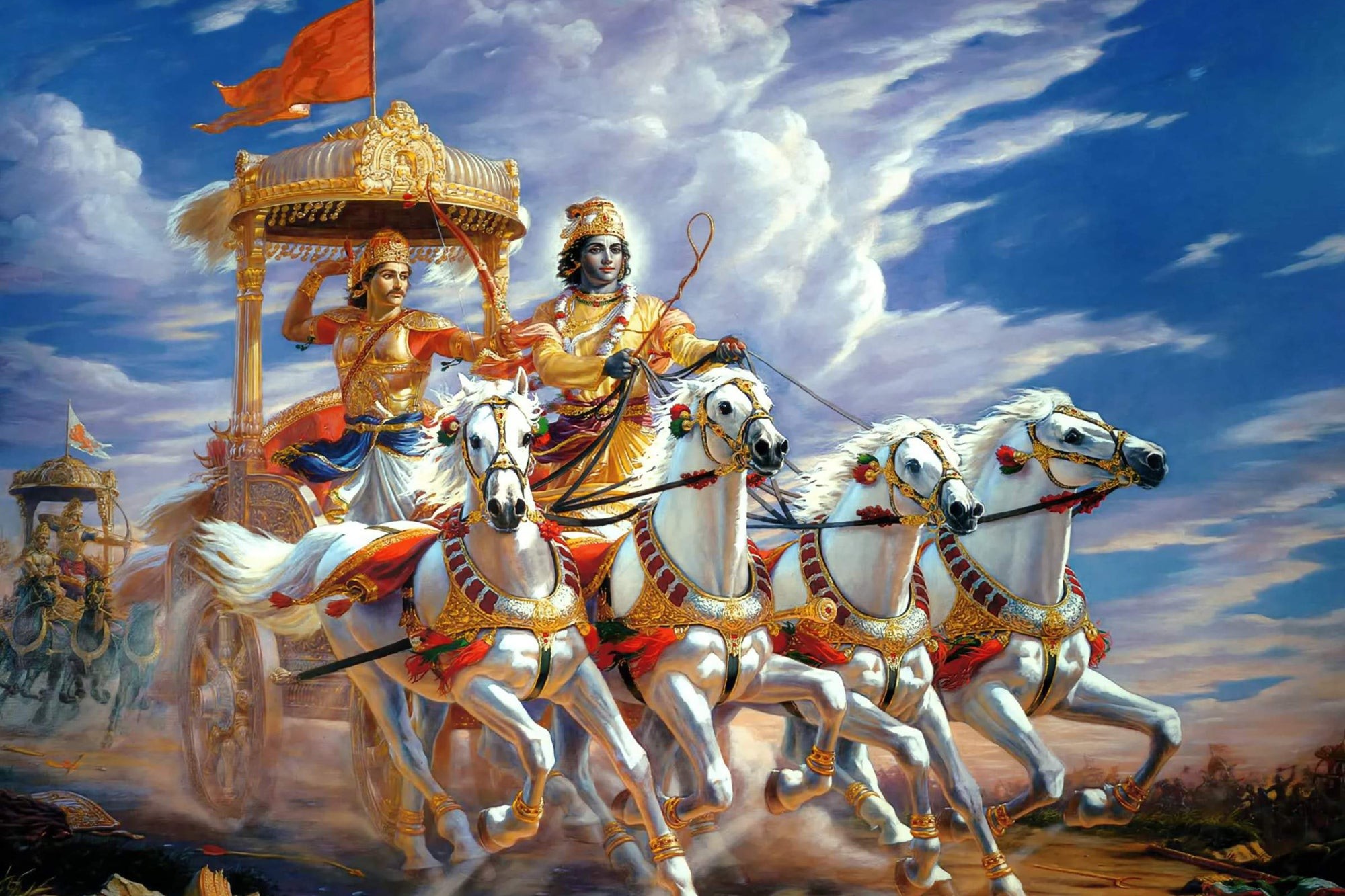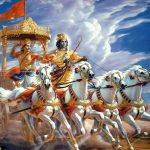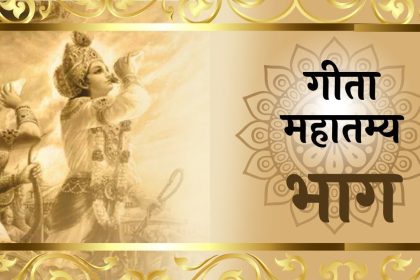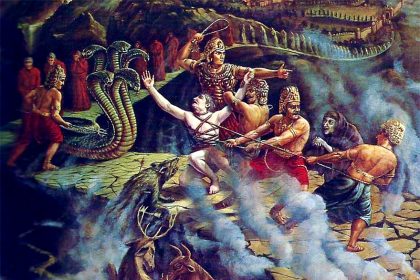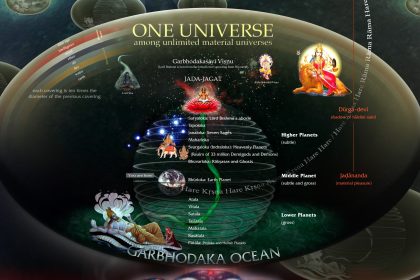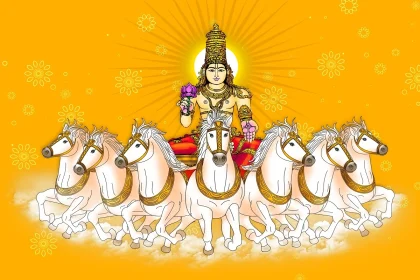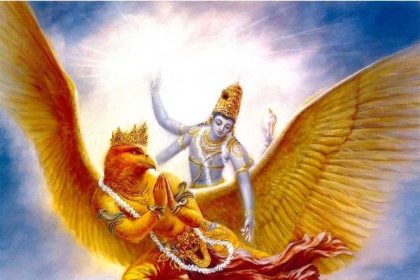TEXT 23
yatra kāle tv anāvṛttim
āvṛttiṁ caiva yoginaḥ
prayātā yānti taṁ kālaṁ
vakṣyāmi bharatarṣabha
SYNONYMS
yatra—at which; kāle—time; tu—and; anāvṛttim—no return; āvṛttim—return; ca—also; eva—certainly; yoginaḥ—different kinds of mystics; prayātāḥ—having departed; yānti—attain; tam—that; kālam—time; vakṣyāmi—I shall describe; bharata-ṛṣabha—O best of the Bhāratas.
TRANSLATION
O best of the Bhāratas, I shall now explain to you the different times at which, passing away from this world, the yogī does or does not come back.
PURPORT
The unalloyed devotees of the Supreme Lord, who are totally surrendered souls, do not care when they leave their bodies or by what method. They leave everything in Kṛṣṇa’s hands and so easily and happily return to Godhead. But those who are not unalloyed devotees and who depend instead on such methods of spiritual realization as karma-yoga, jñāna-yoga and haṭha-yoga must leave the body at a suitable time and thereby be assured whether or not they will return to the world of birth and death.
If the yogī is perfect he can select the time and situation for leaving this material world. But if he is not so expert his success depends on his accidentally passing away at a certain suitable time. The suitable times at which one passes away and does not come back are explained by the Lord in the next verse. According to Ācārya Baladeva Vidyābhūṣaṇa, the Sanskrit word kāla used herein refers to the presiding deity of time.
TEXT 24
agnir jyotir ahaḥ śuklaḥ
ṣaṇ-māsā uttarāyaṇam
tatra prayātā gacchanti
brahma brahma-vido janāḥ
SYNONYMS
agniḥ—fire; jyotiḥ—light; ahaḥ—day; śuklaḥ—the white fortnight; ṣaṭ-māsāḥ—the six months; uttara—ayanam—when the sun passes on the northern side; tatra—there; prayātāḥ—those who pass away; gacchanti—go; brahma—to the Absolute; brahma-vidaḥ—who know the Absolute; janāḥ—persons.
TRANSLATION
Those who know the Supreme Brahman attain that Supreme by passing away from the world during the influence of the fiery god, in the light, at an auspicious moment of the day, during the fortnight of the waxing moon, or during the six months when the sun travels in the north.
PURPORT
When fire, light, day and the fortnight of the moon are mentioned, it is to be understood that over all of them there are various presiding deities who make arrangements for the passage of the soul. At the time of death, the mind carries one on the path to a new life. If one leaves the body at the time designated above, either accidentally or by arrangement, it is possible for him to attain the impersonal brahmajyoti. Mystics who are advanced in yoga practice can arrange the time and place to leave the body. Others have no control—if by accident they leave at an auspicious moment, then they will not return to the cycle of birth and death, but otherwise there is every possibility that they will have to return. However, for the pure devotee in Kṛṣṇa consciousness, there is no fear of returning, whether he leaves the body at an auspicious or inauspicious moment, by accident or arrangement.


